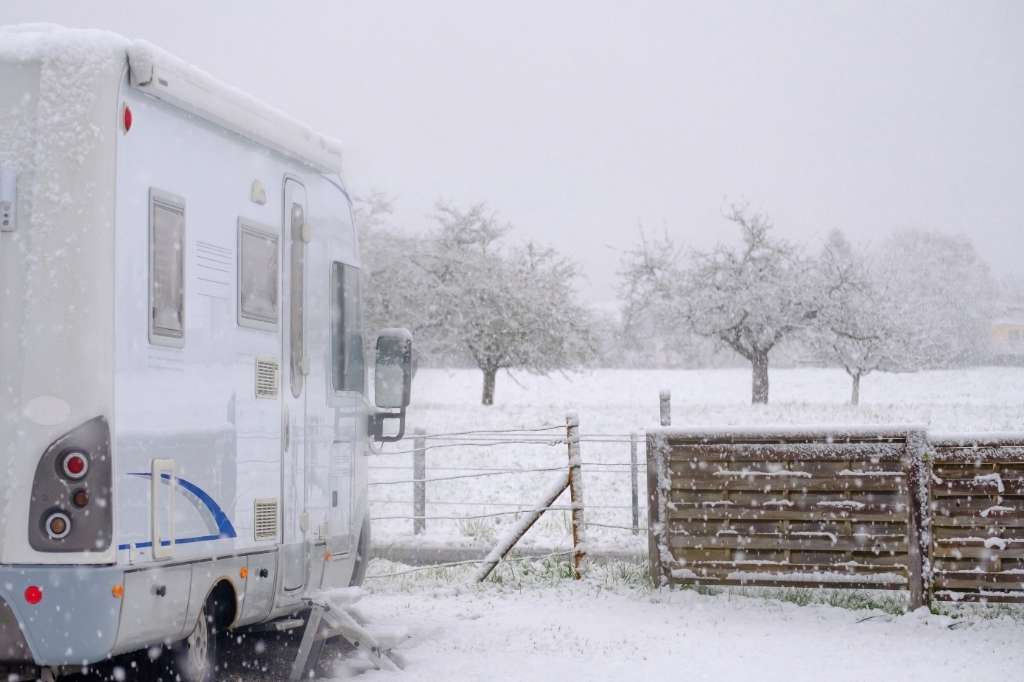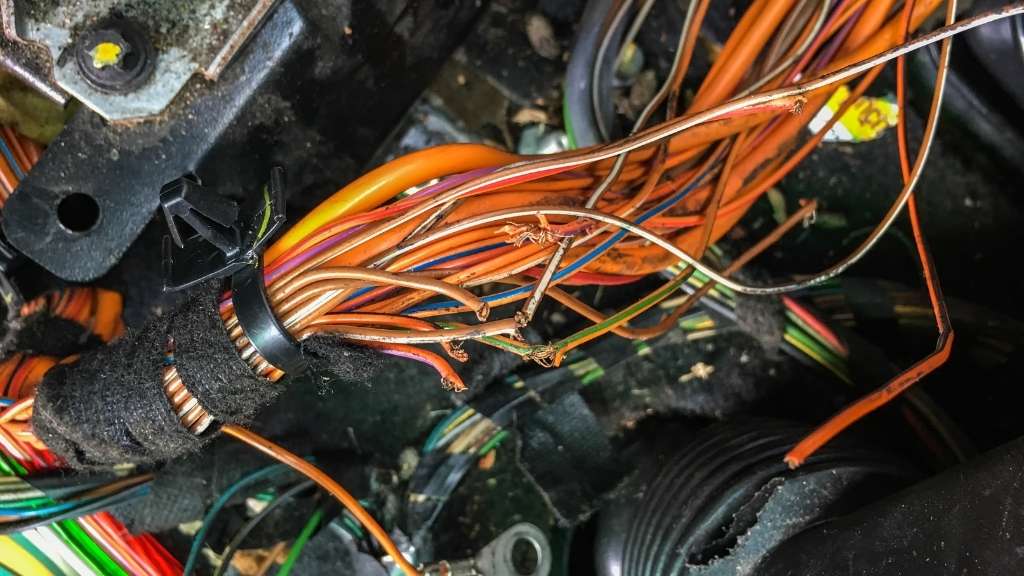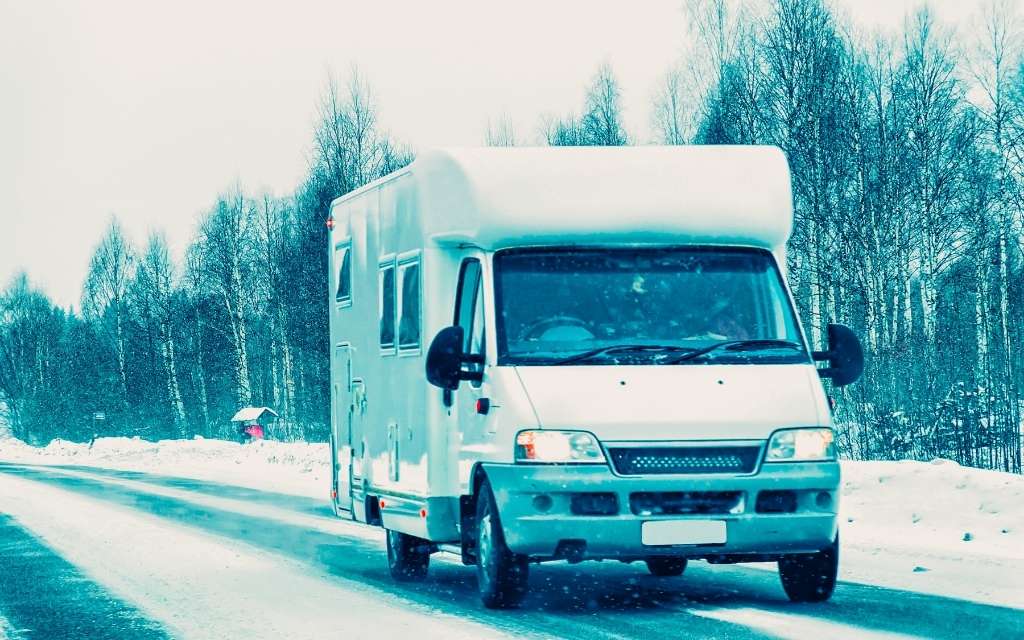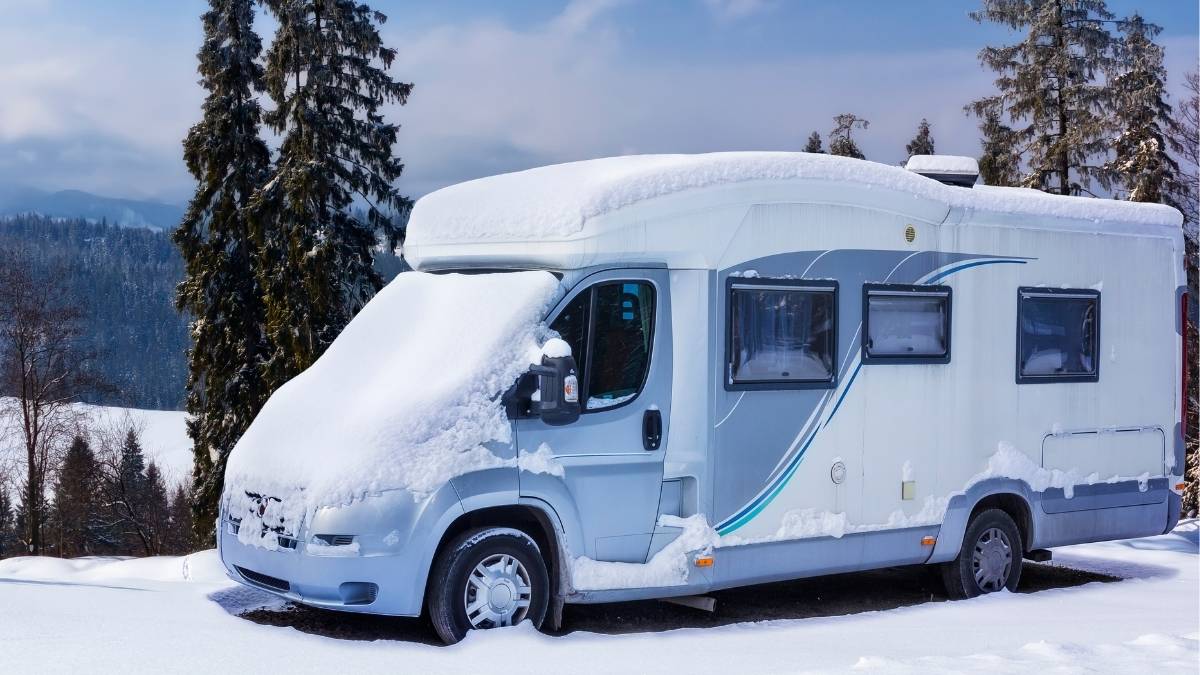Many Canadians and Americans in colder states winterise (or winterize) their motorhome, car, boat, or swimming pool routinely every year. In the UK we tend to think about it less, but there are good reasons to give your motorhome some TLC before winter sets in.
Winter is coming. What does that mean for you and your motorhome? Are you still going to be going away or will you be storing it away for the winter season?
Whether or not you want to store your motorhome or campervan away for winter will depend upon how much of a fair weather camper you are and if you only use your van for trips away.
In our case, our campervan is our family car and gets used on a daily basis. Not for trips away sadly, mostly just like a regular car.
Unlike a regular car though, our campervan has features we want to make sure we take care of, to make sure it stays in tip top condition.
Many of us will have sunk a lot of money into our home away from home and want to be sure we are following the right steps to look after it over the harsh winter months.
Winterising your motorhome
If you are planning to hang up your keys for a few months and leave the trips until the warmer weather returns, there are some steps you can take to ensure your campervan or motorhome stays safe and in excellent condition until the spring.
The main winter threats to your motorhome or campervan are:
- Condensation
- Water pipe damage
- Vermin damage
- Theft

Condensation
Condensation occurs when warm air cools and becomes liquid. This liquid is usually only small droplets but they will find the coldest place they can and form a film or pool there.
Condensation can cause damp if left unchecked and will make upholstery musty.
Ventilation
Some easy steps to take to keep good ventilation in your campervan or motorhome and to avoid condensation:
- Make sure your fridge is off and propped open.
- Open all cupboards to allow air flow.
- Move any fabric items away from the glass windows. Having these propped up in the middle of the van is best. Consider removing fabric items altogether and keeping them nice and dry in the house.
Heat
Some campervan and motorhome owners opt to gently heat their motorhomes instead. If you have access to electricity you can purchase a small oil heater and leave it running on a low heat, just to keep the temperature from becoming too cold on the inside.
These heaters are typically low wattage, so cheap to run and have a thermostatic cut off for safety.
Moisture absorption
This approach removes moisture from the air before it settles as condensation.
An easy method is to use a tray of cat litter. It works a treat at absorbing any damp in the air.
Cat litter can also be used in a sock placed in cupboards for the same effect.
Water pipe damage
A critical issue in winterising your motorhome is to remove any water.
This one is pretty straightforward. If you have left your fresh or grey water tanks containing water then the water is liable to freeze if the weather is cold enough.
Before you put your campervan or motorhome away for the winter double check the water tanks are empty.
If you miss this step and the water does freeze and expand, you could be looking at an expensive repair bill to fix your water pipes or tanks.
- Empty all clean and waste water tanks.
- Leave taps open to allow for expansion.
Go for a short drive with drainage points still open to move along all the excess water and make sure the tanks are completely empty.
Vermin damage

It wasn’t winter-related for our van, but vermin are a real problem for campervans and motorhomes.
When the temperature drops, these little pests will be looking for shelter and food.
For us it seemed, “food” was the cable housing on several sensor wires on the underside of our van. Some type of vermin – rat, mouse or squirrel – went to town and caused no end of expensive damage.
This threat is greater in winter as vermin will double down on finding the essentials. Don’t let your campervan or motorhome become a home for rodents! Include pest control in your plans to winterise your motorhome.
You may also have the same nasty surprise we did, that this damage wasn’t covered by our campervan insurance.
Tips to keep vermin at bay
Here are our top tips to prevent pests from making themselves comfortable in your motorhome over the winter:
- Soak some sponges or cotton wool pads with peppermint oil and leave in various spots around the campervan or motorhome. Make sure to include the engine bay.
- Buy and set some mouse traps or baits just in case. These ones from the Big Cheese have worked a treat for us.
- Pestbye Sonic Repellent. This set of two means you can have one in the habitation area and one in the engine bay. They are battery operated so you can set and forget.
- Protect exposed wiring. We have since used this anti-rodent insulation tape and The Big Cheese Anti-Rodent Lacquer anti-rodent spray to stop future damage.
Don’t underestimate how destructive vermin can be, and how they can squeeze through tiny spaces. The more preventive measures you take, the better.
It is also worth noting that vermin such as rats and mice, like warm, cosy places. If you heat your van to stop it from freezing then it becomes more inviting for pests so vermin protection is even more critical.
Theft
Sadly campervans and motorhome theft is up year on year. You have to do what you can to keep your vehicle safe.
If it is sitting immobile and untouched for many months on end, it could become more of a target for thieves.
Campervan security is a year-round issue, but worth taking stock when you take steps to winterise your motorhome or campervan.
Here are our tips on how to deter thieves from stealing your motorhome or campervan while it’s sitting idle on your drive:
- Make sure you have a decent Thatcham alarm fitted.
- Consider fitting a tracker.
- Install security lights on the driveway or storage area.
- Install a security camera like the Ring Spotlight Cam near the campervan or motorhome.
- Disconnect the batteries.
- If you have a campervan which has seats that spin round, consider leaving them in the backwards position to make driving away difficult.
There are various security devices you can use on your vehicle to make it immobile or at least will delay a thief and deter them from having a go at stealing it.
Types of immobilising security devices
- Wheel clamps
- Steering wheel locks
- Clamp claws
- Ghost immobilisers
- Campervan or motorhome covers
Read More: Campervan Security: The Ultimate Guide
Campervan winter covers
If you don’t plan to use your motorhome or campervan at all over the winter months, consider buying a cover to protect it.
Using a cover on your motorhome or camper will stop damaging frost from getting to the vehicle. An additional benefit is that it acts as an anti-theft measure by making it harder for opportunists to get inside.
If you’ve read other posts on Own The Outdoors, you’ll know we love Kampa as a brand. Kampa manufactures this excellent motorhome cover which is breathable (to avoid condensation), lightweight and easy to use.
Insurance pitfalls
We’ve already mentioned vermin as a key exclusion clause on many campervan insurance policies, but there are some other traps to be aware of.
Some campervan insurance policies will not pay out for damage caused by water freezing in any fixed heating appliance or loss or damage caused by water escaping when the campervan or motorhome is not in use.
This does not apply to all policies, check your small print for details.
Be careful that you don’t invalidate your insurance policy by keeping the campervan or motorhome anywhere other than where you stated when you took out the policy.
If you plan to store your campervan or motorhome at an alternative storage location for the winter, make sure you inform your insurance company so they can update their records. This may mean an additional cost if the new location is considered higher risk than your usual storage location.
Read More: Campervan and Motorhome Insurance: Best Providers for 2020/21
Campervan winter driving top tips

If you are planning on going out and about in your campervan or motorhome this winter, follow these top tips to help keep you safe on the road:
- Make sure you check the engine oil and the levels are correct.
- Check the windscreen washer fluid has enough antifreeze content.
- Consider getting winter tyres for greater protection on ice and snow. Always check the pressure tyres are set correctly.
- Make sure you always carry extra warm layers just in case of a breakdown or road closure.
- Always have some water available on board, and a few snacks.
- Make sure the motorhome or campervan is warm enough to open the doors and windows. Damage can occur if a door or window is frozen shut. Allow thawing a little before opening.
- Same as above with windscreen wipers. Make sure they have thawed enough to use and are not frozen to the windscreen. Never use hot water to thaw your windscreen as it can crack.
- Make sure you keep the fuel topped up, just in case.
- Turn the engine over every couple of weeks if you can.
- If you can move the campervan or motorhome slightly it means it is not always resting on the same circle of tyre and will save on wear and tear.
